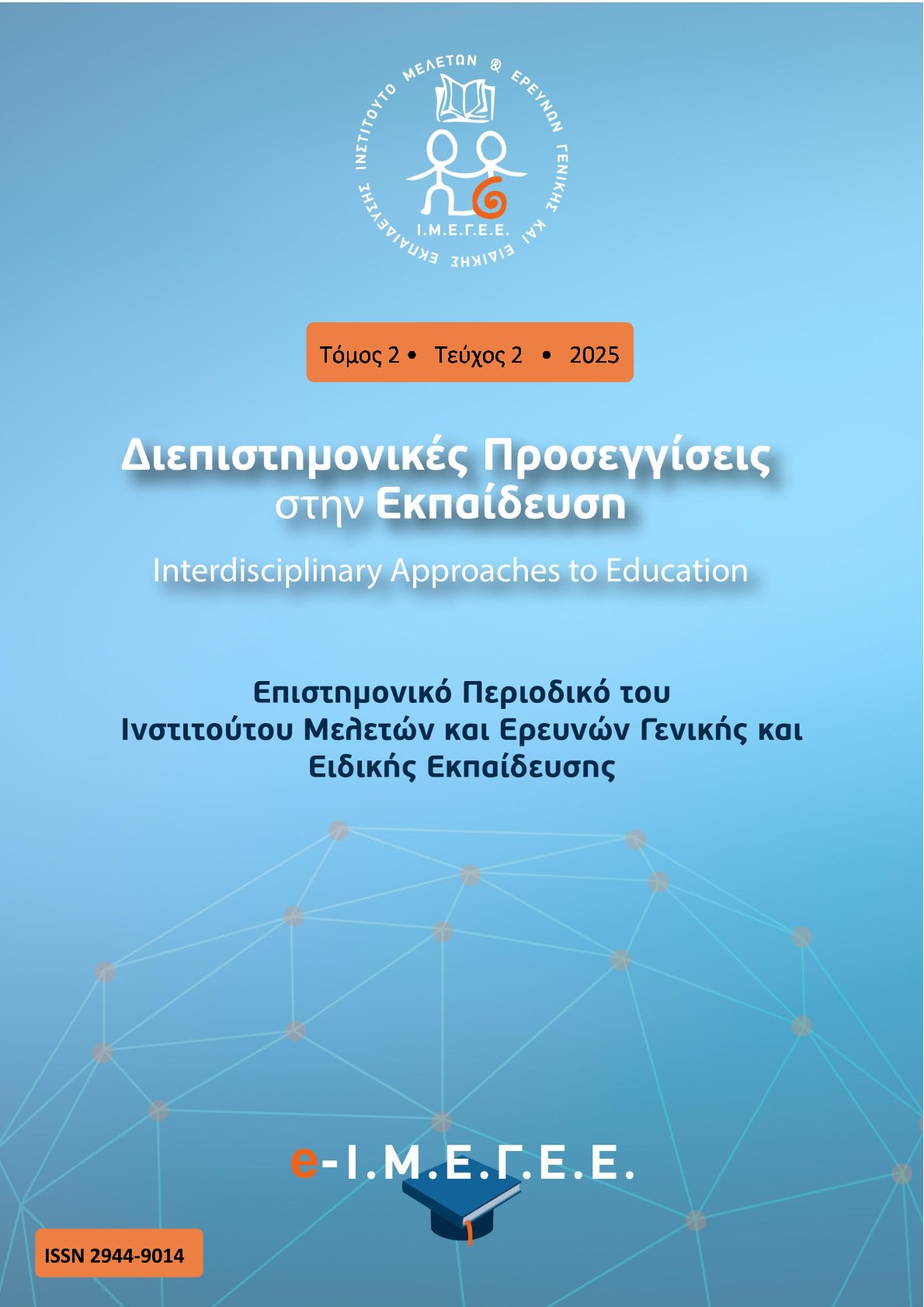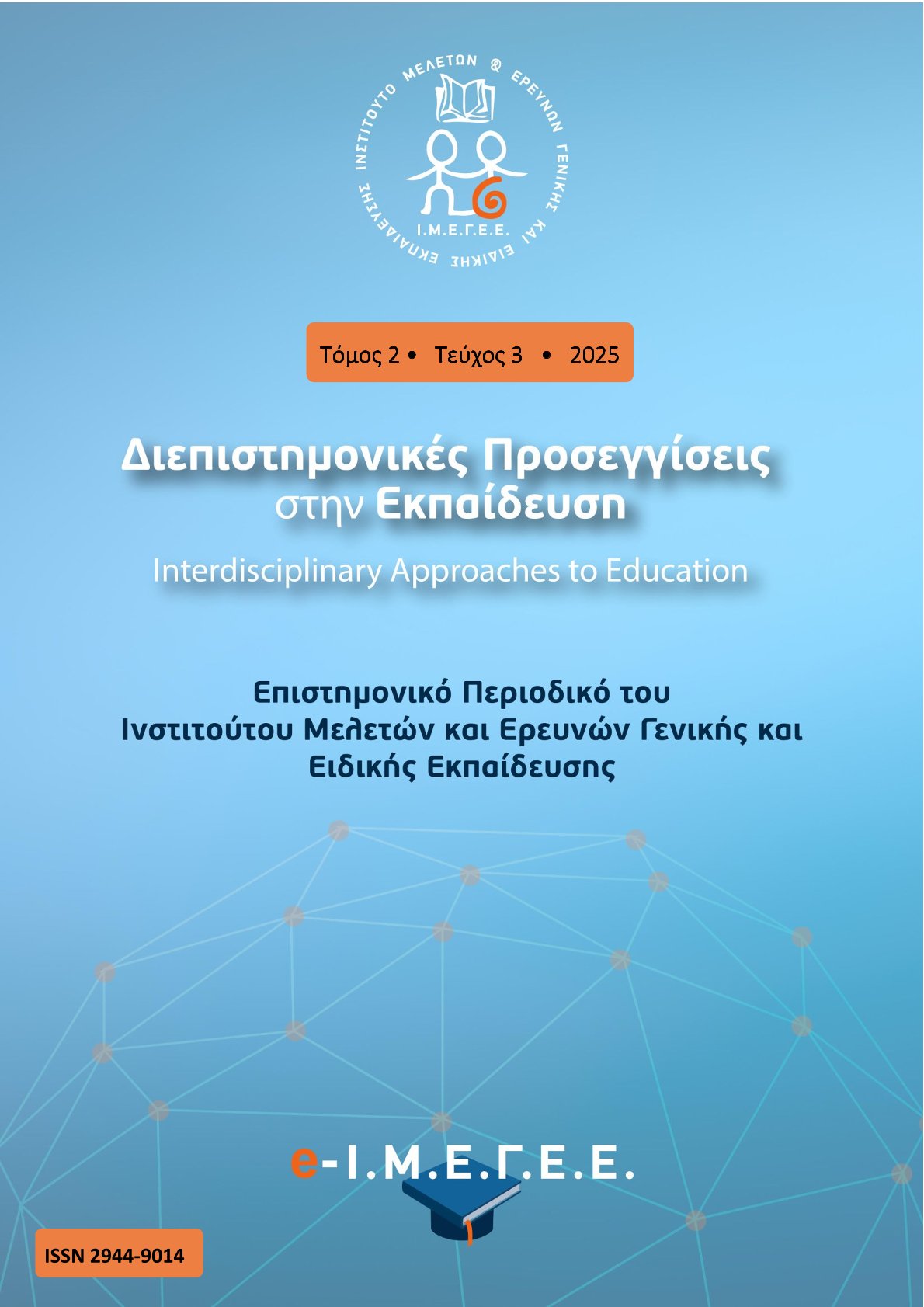Από τη Φροντίδα στην Αξιολόγηση: Κοινωνικοπολιτισμικές Όψεις της Πρώιμης Παιδικής Ανάπτυξης σε συνθήκες φτώχειας και αναπηρίας

Abstract
Early childhood is widely recognized as a critical period for laying the foundation of a child’s future cognitive, social, emotional, and academic development. At this pivotal stage, the quality of parent–child relationships and the broader family environment emerge as key determinants of developmental outcomes.
This literature review focuses on the role of parental support and the impact of poverty on the developmental trajectory and assessment of young children, viewed through a sociocultural lens. Poverty is not merely a lack of material resources but a complex social condition that affects family functioning, caregiving quality, parental expectations, and access to educational opportunities. Research consistently shows that children from low-income families are at greater risk for language delays, lower self-regulation skills, and limited social integration. Their parents often experience heightened psychological stress, depression, and social isolation—factors that undermine positive engagement in early learning processes.
Special emphasis is placed on the intersection between poverty and disability. Families raising children with developmental or functional differences often face compounded exclusion and hidden forms of inequality. These children are more vulnerable to delayed diagnoses, stigmatization, and deficit-based interpretations of their potential. The review calls for a redefinition of assessment practices in early childhood education. Standardized tools often fail to validly reflect the abilities of children from culturally and socially diverse backgrounds, leading to biased evaluations and educational marginalization.
Instead, a shift toward culturally responsive and ecosystemic approaches is proposed—approaches that acknowledge family dynamics, contextual strengths, and the protective role of supportive caregiving in fostering resilience.
In conclusion, strengthening parental involvement and recognizing the multifaceted nature of poverty and disability—not only as pedagogical but also as social challenges—are essential steps toward building a more equitable and inclusive early education system.
Article Details
- How to Cite
-
Γκιαούρη Σ. (2025). Από τη Φροντίδα στην Αξιολόγηση: Κοινωνικοπολιτισμικές Όψεις της Πρώιμης Παιδικής Ανάπτυξης σε συνθήκες φτώχειας και αναπηρίας. Interdisciplinary Approaches to Education, 2(2). https://doi.org/10.12681/.42054
- Section
- Articles
Ενημέρωση για τα πνευματικά δικαιώματα
Οι συγγραφείς των άρθρων που δημοσιεύονται στο περιοδικό διατηρούν τα δικαιώματα πνευματικής ιδιοκτησίας επί των άρθρων τους, δίνοντας στο περιοδικό το δικαίωμα της πρώτης δημοσίευσης. Άρθρα που δημοσιεύονται στο περιοδικό διατίθενται με άδεια Creative Commons 4.0 και σύμφωνα με την άδεια μπορούν να χρησιμοποιούνται ελεύθερα, με αναφορά στο/στη συγγραφέα και στην πρώτη δημοσίευση για μη κερδοσκοπικούς σκοπούς και με δικαίωμα τροποποίησης μόνον με παρόμοια διανομή (αν αναμείξετε, τροποποιήσετε, ή δημιουργήσετε πάνω στο υλικό, πρέπει να διανείμετε τις δικές σας συνεισφορές υπό την ίδια άδεια όπως και το πρωτότυπο).
Απαγορεύεται η αντιγραφή, αποθήκευση και διανομή της παρούσας εργασίας, εξ’ολοκλήρου ή τμήματος αυτής, για εμπορικό σκοπό. Επιτρέπεται η ανατύπωση, αποθήκευση και διανομή για σκοπό µη κερδοσκοπικό, εκπαιδευτικής ή ερευνητικής φύσης, υπό την προϋπόθεση να αναφέρεται η πηγή προέλευσης και να διατηρείται το παρόν µήνυµα. Ερωτήματα που αφορούν τη χρήση της εργασίας για κερδοσκοπικό σκοπό πρέπει να απευθύνονται προς τους συγγραφεα-είς. Οι απόψεις και τα συμπεράσματα που περιέχονται σε αυτό το έγγραφο εκφράζουν το-ους συγγραφέα-είς και δεν πρέπει να ερμηνευθεί ότι αντιπροσωπεύουν τις επίσηµες θέσεις του Ινστιτούτου Μελετών και Eρευνών Γενικής και Ειδικής Εκπαίδευσης (Ι.Μ.Ε.Γ.Ε.Ε.).
Copyright notice
Authors retain copyright and grant the journal right of first publication with the work simultaneously licensed under a Creative Commons Attribution NonCommercial License that allows others to share the work with an acknowledgement of the work's authorship and initial publication in this journal.



